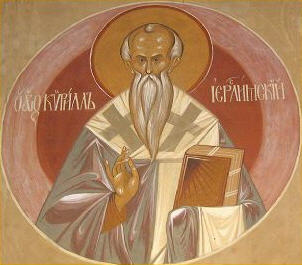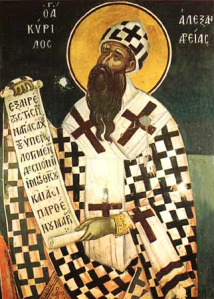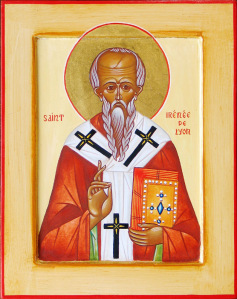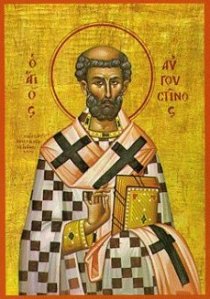 On the night he was betrayed our Lord Jesus Christ took bread and when he had given thanks, he broke it and gave it to his disciples and said: ‘Take, eat: this is my body.’
On the night he was betrayed our Lord Jesus Christ took bread and when he had given thanks, he broke it and gave it to his disciples and said: ‘Take, eat: this is my body.’
He took the cup, gave thanks and said: ‘Take, drink: this is my blood.’
Since Christ himself has declared the bread to be his body, who can have any further doubt?
Since he himself has said quite categorically, This is my blood, who would dare to question it and say that it is not his blood?
Therefore it is with complete assurance that we receive the bread and wine as the body and blood of Christ.
His body is given to us under the symbol of bread, and his blood is given to us under the symbol of wine, in order to make us by receiving them one body and one blood with him.
Having his body and blood in our members, we become bearers of Christ and sharers, as Saint Peter says, in the divine nature.
Once when speaking to the Jews Christ said: Unless you eat my flesh and drink my blood you shall have no life in you. This so horrified them that they left him. Not understanding his words in a spiritual way, they thought the Saviour wished them to practise cannibalism.
Under the old covenant there was showbread, but it came an end with the old dispensation to which it belonged.
Under the new covenant there is bread from heaven and the cup of salvation. These sanctify both soul and body, the bread being adapted to the sanctification of the body, the Word to the sanctification of the soul.
Do not, then, regard the Eucharistic elements as ordinary bread and wine: they are in fact the body and blood of the Lord, as he himself has declared. Whatever your senses may tell you, be strong in faith.
You have been taught and you are firmly convinced that what looks and tastes like bread and wine is not bread and wine but the body and the blood of Christ.
You know also how David referred to this long ago when he sang: Bread strengthens the heart and makes the face glow with the oil of gladness.
Strengthen your heart, then, by receiving this bread as spiritual bread, and bring joy to the face of your soul.
May purity of conscience remove the veil from the face of your soul so that by contemplating the glory of the Lord, as in a mirror, you may be transformed from glory to glory in Christ Jesus our Lord. To him be glory forever and ever. Amen.
Cyril of Jerusalem (c. 313-386): Catechesis 22, 1, 3-6 (PG 33:1087-1091); from the Monastic Office of Vigils, Easter Friday, Year 2.














